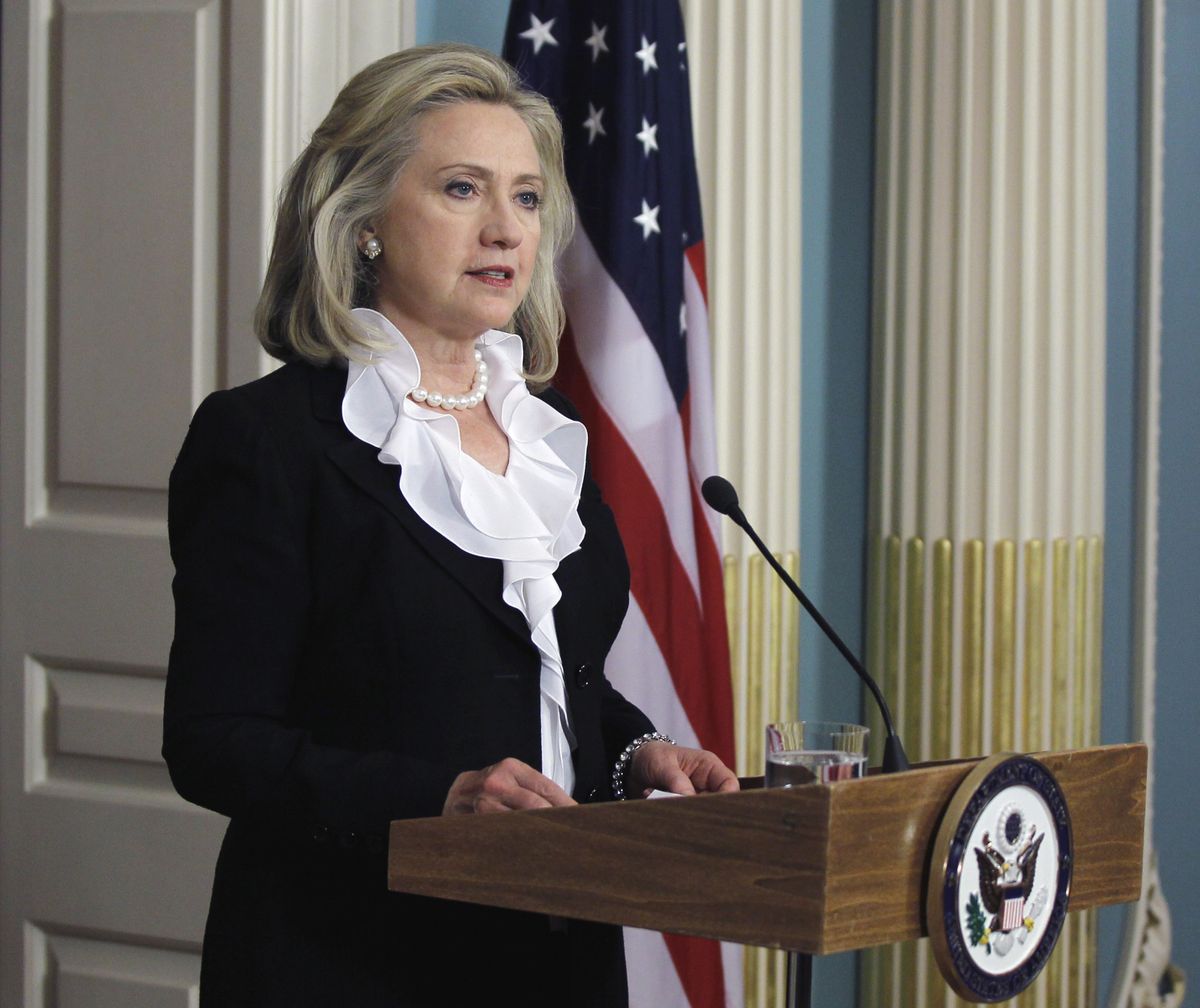U.S. leads demands for Syrian leader to step down

WASHINGTON – After months of criticism that he was too soft on Syria’s government, President Barack Obama on Thursday led a choreographed call by Western governments for President Bashar Assad to give up power, further isolating his autocratic regime.
The demand for Assad’s ouster, echoed by the governments of France, Britain, Germany, Canada and the European Union, followed weeks of diplomatic talks aimed at presenting a common front against Assad’s government. The administration had hoped that Turkey and Saudi Arabia, two regional powers that have more influence over Syria, would join the effort.
Those countries neither supported nor condemned Obama’s call for Assad to leave, a silence widely interpreted as an expression of frustration at the Syrian leader’s unfulfilled promises to end violence in his country.
In Geneva, a high-level U.N. human rights team said that Syria’s crackdown “may amount to crimes against humanity” and should be referred to the International Criminal Court. The U.N. investigators say they had found “a pattern of human rights violations that constitutes widespread or systematic attacks against the civilian population.”
U.N. human rights chief Navi Pillay said Thursday she had asked the Security Council to refer Syria to the court, and the U.S. and Europeans said they would push for sanctions at the U.N.
On Thursday, Assad’s government showed no sign of stopping its attacks on protesters, who have built a widespread movement.
Until now, the administration had suggested that Assad still held enough legitimacy to preside over reforms that would loosen his autocratic grip on power. But with the killing and mass arrests showing no signs of abating, Obama said for the first time that Assad was unfit to lead Syria.
Assad’s pledges of reform have “rung hollow while he is imprisoning, torturing, and slaughtering his own people,” Obama said in a written statement. “For the sake of the Syrian people, the time has come for President Assad to step aside.”
European governments said they were open to further European Union sanctions on Syria.
But the Europeans, who buy 90 percent of Syria’s oil exports, did not announce any decision to stop those imports.
That reluctance highlighted the limited leverage Washington has been able to bring to assist a widening popular revolt in which an entrenched regime had deployed combat troops, tanks and warships against unarmed civilians, killing thousands of people.
Washington officials have ruled out any U.S. military action.
The Obama administration recently imposed several rounds of sanctions against Assad and other top officials. Obama expanded those efforts Thursday with an executive order that freezes all Syrian government assets in U.S. jurisdictions and bars Americans from conducting any business with the regime, including trading in Syrian oil and selling it refined petroleum products.
But administration officials pointed out that Washington has kept sanctions on Syria for decades with little effect, and there is little American trade with Syria to stop. As a result, officials made it clear that Obama’s announcement may have a limited effect, and Assad’s downfall is far from assured.
Administration officials said they still are urging Turkey and Arab governments including Saudi Arabia to do more to help depose Assad.
This week, Secretary of State Hillary Rodham Clinton appeared to play down the importance of a U.S. call for Assad’s departure. But, she added, “if Turkey says it, if Saudi King Abdullah says it, if other people say it, there is no way the Assad regime can ignore it.”
The Turkish government, Syria’s biggest trading partner, is ambivalent about the crisis, in part because of its economic interests. While Prime Minister Recep Tayyip Erdogan and other leaders have condemned Assad, they have not been as aggressive as the Obama administration would like.
Saudi Arabia, which has powerful influence with the Sunni majority of the Alawite-led country, also has condemned Assad and recently withdrew its ambassador. It did not react immediately to the U.S. and European actions.
The Syrian government predicted the call for the regime’s removal would lead to more bloodshed.
“It is strange that instead of offering Damascus a helping hand to implement its program of reforms, the West and Obama are seeking to stoke more violence in Syria,” Reem Haddad, an Assad spokeswoman, told Agence France-Presse.
The Syrian government says unidentified Islamic extremists are causing much of the violence in the country. United Nations Secretary-General Ban Ki-moon said Assad promised him on Wednesday that his forces would stop offensive operations Thursday.
But the assertion did not appear to square with reality. An official in the army told the Los Angeles Times correspondent in Damascus that he had no orders to stop fighting.